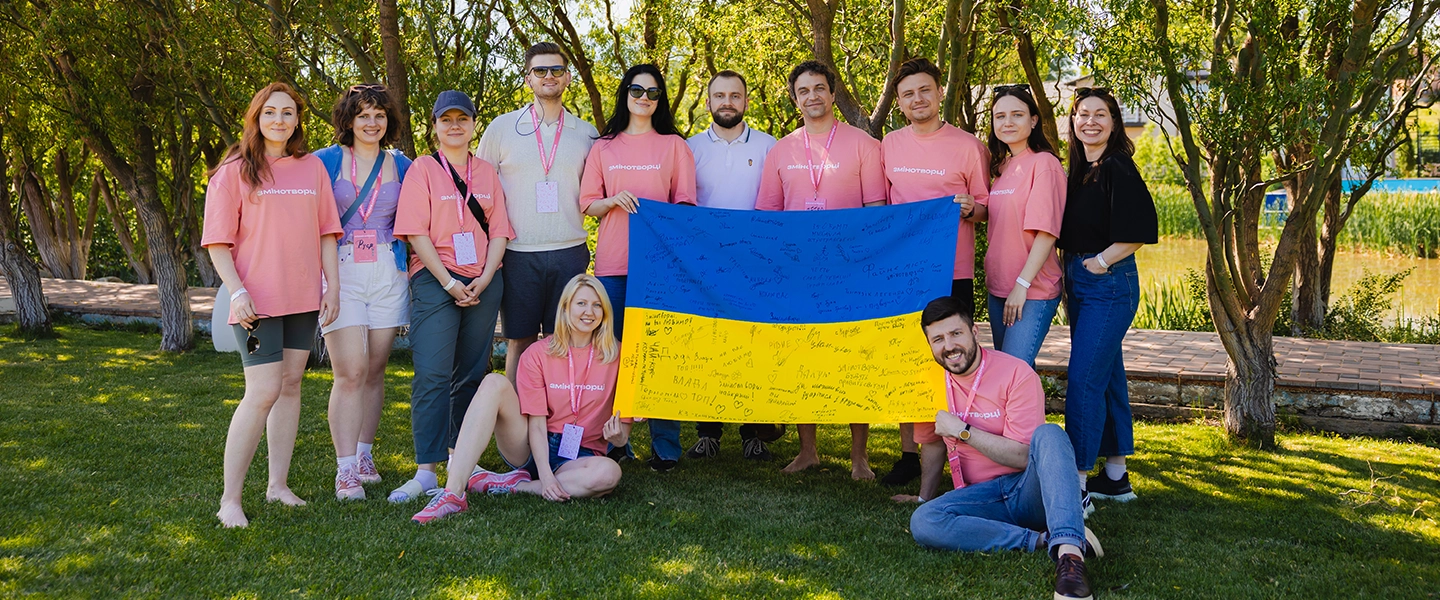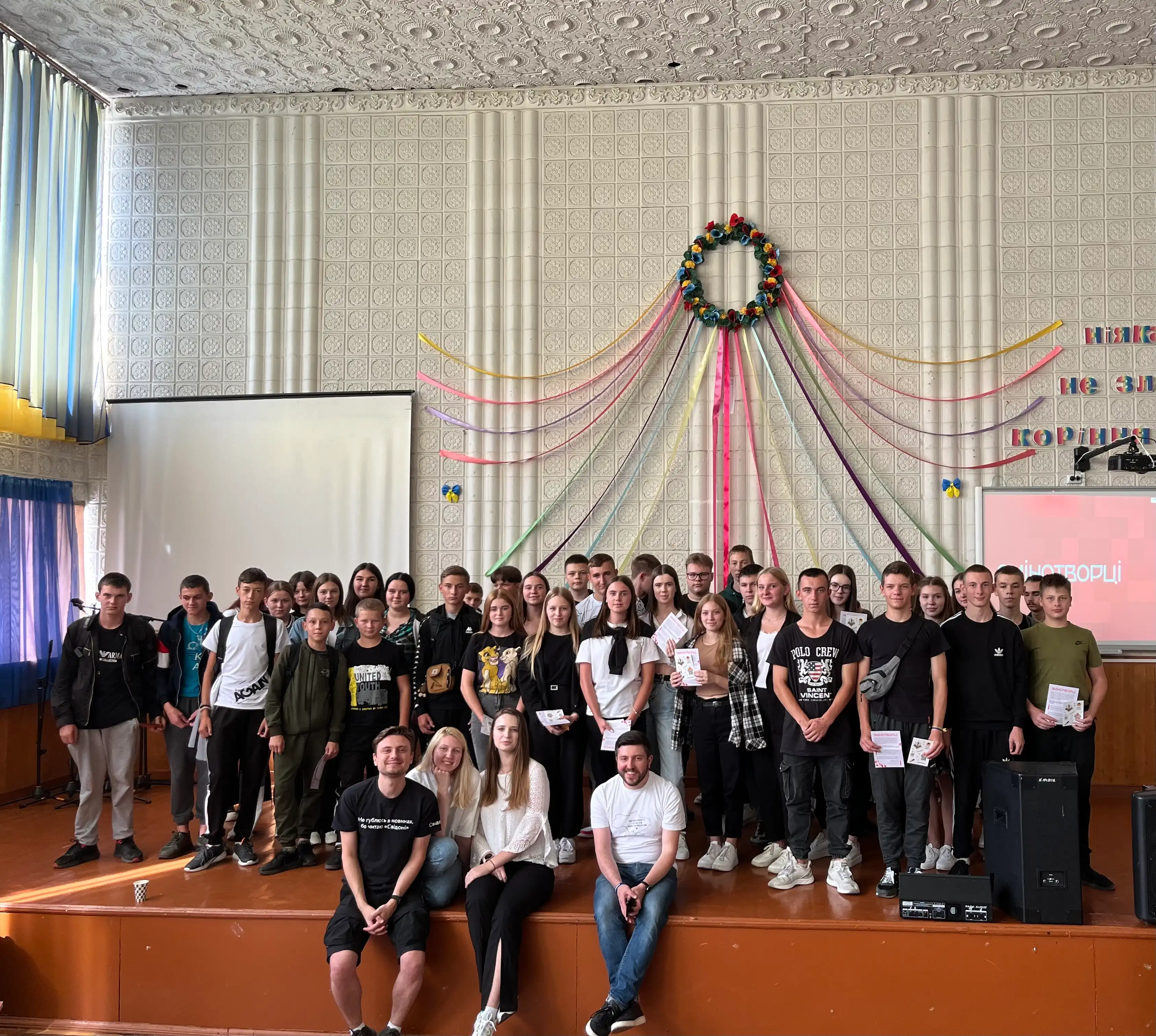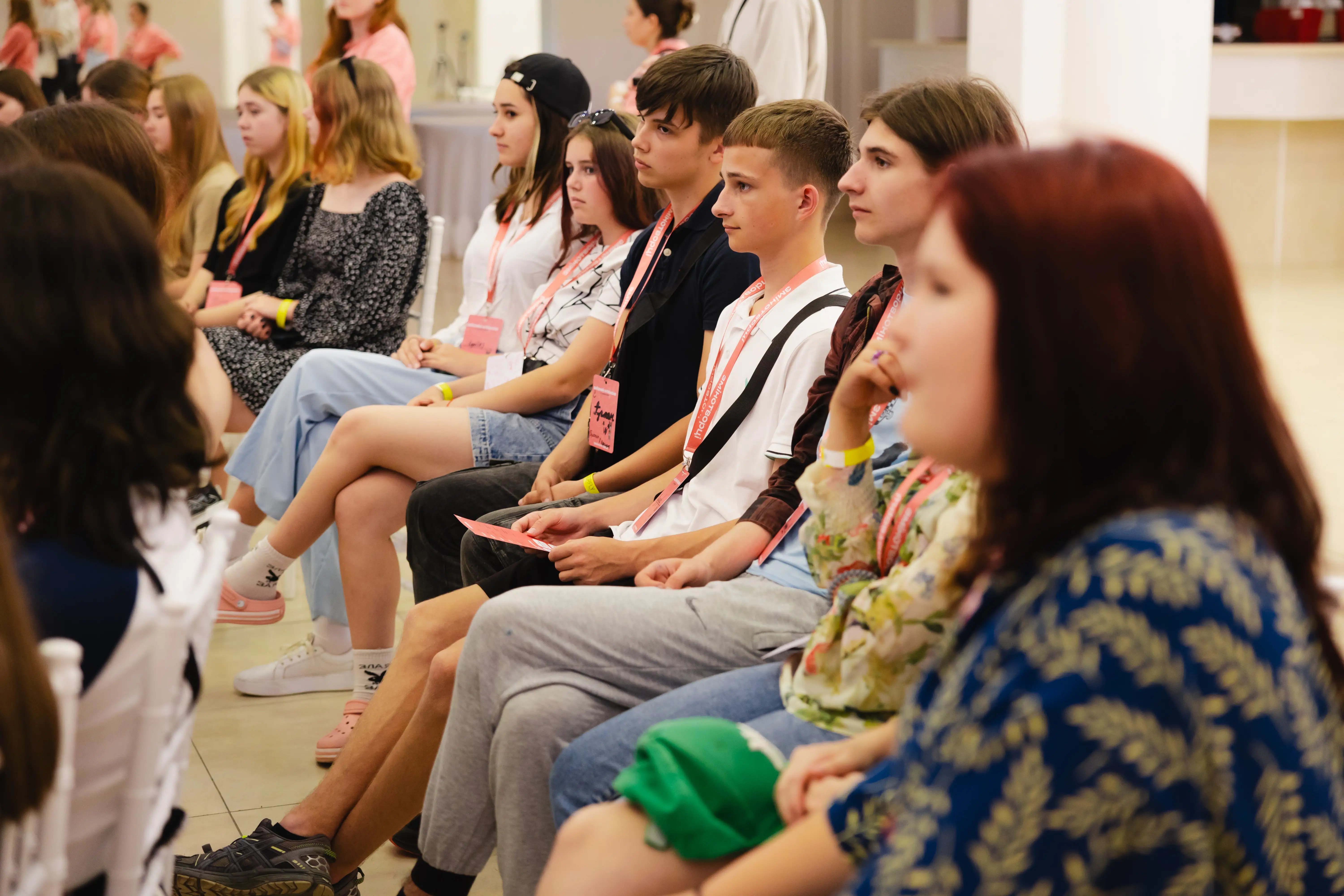Zminotvortsi: investing in Ukraine's future through education

Vladyslav Greziev, co-founder and head of the NGO, told the independent, grant-making organization The European Endowment for Democracy (EED) about “Zminotvortsi.”
“Educating young people is an issue of national security,” says Vladyslav Greziev. “It will determine how strong Ukraine is after its victory and our capacity as a society. Our children are our future.”
Russia’s full-scale invasion of Ukraine has particularly affected children, many of whom are now deprived of a quality education due to safety issues. Today, Zminotvortsi is trying to fill some of the war-created gaps and to help young people be better prepared to lead in the future.
“We connect progressive young people who want to learn,” Vladyslav says. “It is very inspiring to see them contribute their time and energy and to see them grow. As founders, we are constantly motivated by them: these young people who have remained in their towns and villages and who continue working for Ukraine.”
When Zminotvortsi was founded in 2019, it had quite a different mission that were natural extensions of Greziev and the other co-founders’ backgrounds in civil society and business. It focussed more on networking opportunities connecting people from different spheres, including government, business, and media, to promote a climate of changemaking and to solve urgent issues in Ukraine. Vladyslav organised highly popular Zminotvortsi networking events in Kyiv and other Ukrainian cities, bringing together active individuals from various sectors and hosting over 150 events.
The full-scale invasion transformed the concept behind Zminotvortsi. Today, due to Russia’s war, roughly six million Ukrainians have fled the country, and five million now live under Russian occupation. 42 percent of people under 20 have left the country, and 80 percent of all refugees are urban dwellers. Vladyslav knew it was vital to do something for young people remaining in Ukraine, especially for those in rural areas.
“We chose to develop a long-term educational project for high school students from villages and small towns. Rural areas lack the opportunities and spaces for young people to develop that are available in big cities. In some villages where we work, children have access to a limited number of adults, so besides their parents, they may know only twenty grown-ups – from school, the local store, and post office,” he says.
The team started out by visiting 28 schools in seven regions in Ukraine. Realising that there was a significant demand from the teenagers, they decided to expand. In a few months’ time, “Zminotvortsi” plans to do a nation-wide campaign.

“Three regions are right on the frontline where it is very dangerous to go to school. We will adjust our work to serve participants from these areas as much as we can,” Vladyslav explains.
Zminotvortsi now has a team of 15 and works with a community of teachers, all motivated people with different expertise who teach students online. 371 teenagers are currently enrolled in the project’s classes, and 120 students have finished at least one course. Despite the ongoing war, the team has engaged 1,900 children through the regional trips where they visited different schools.
“We have a hundred friendly schools,” Vladyslav says. “These are the schools which we visited, and where we met enthusiastic principals and teachers. As part of our work, we run training courses for the teachers, helping them find the best approaches to engage their students.”
EED began supporting Zminotvortsi at an early stage. “We didn't have a tangible product yet. It was thanks to EED's support that our team launched this project in the first place. That has allowed us to scale bigger,” says Vladyslav.
“At first, we aimed to involve up to 500 teenagers, but we soon realised we could not afford to wait and we needed to expand and support more young people. Our goal for the next five years is to target 20,000 students, which means we need to recruit 1,700 teachers. We want to promote the practice of skilled adults taking on extra responsibility and sharing their knowledge and values. We are working with Ukrainians who care and understand the importance of passing on the intellectual legacy to the next generation.”

The war influences the curriculum that the students receive – for example, during lectures on environment, students talk about the impact that the Kakhovka dam explosion had on Ukraine’s ecosystem.
“I know many teenagers who are taking three of our courses in addition to their schoolwork,” Vladyslav says. “We check how students’ knowledge changes before and after taking our courses, and the results are impressive. The participants also send us heartwarming videos with feedback.”
For Zminotvortsi, working with teenagers is a way to support local communities and invest in a lasting change that would strengthen Ukraine from within.
“They are the people who can move Ukraine forward. They are ordinary people, who are doing a tremendous job for their country, and they are true heroes. That’s why we want to support them, and we want to help them build a better Ukraine through our children.”
More on the EED website.

